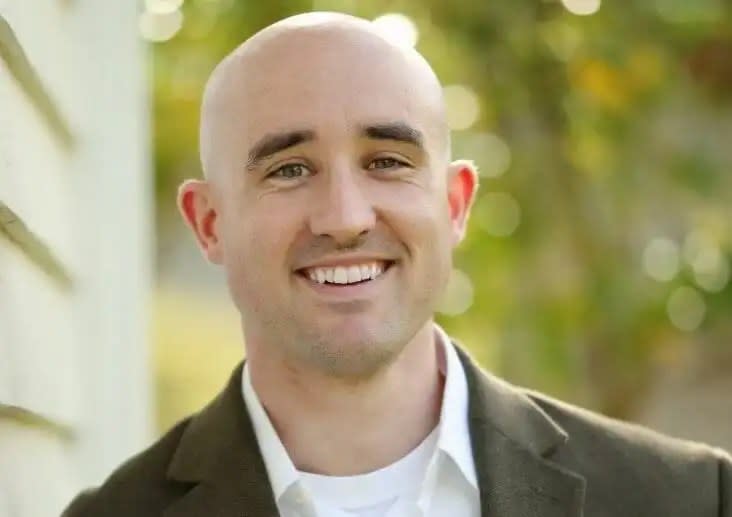My wife and I bought long-term care policies 25 years ago when they were relatively cheap. Now, our premiums have increased for the third time to over $500 per month and will rise again in six years. I figure I’ve already paid about $72,000 in premiums. Now, in our late 70s, I’m trying to decide if I should accept the increases or cancel the policies. What do you think?
– Robert
Nobody likes paying higher premiums and it can be frustrating watching them increase. However, just like it was when you initially decided to purchase the policy, the issue at hand is still whether or not you need and can afford the coverage. (And if you need help planning for your long-term care or saving for future expenses, consider speaking with a financial advisor.)
Sunk Cost of Previous Premiums
Before we address the question directly, let’s talk about the $72,000 you’ve paid up to this point. I’m not sure if you’re suggesting that you should keep going or stop because you’ve already spent that much, but it shouldn’t affect your decision either way. Those prior premiums are sunk cost, and the insurance coverage they bought you is in the past. It’s no different than the $10 you spent on yesterday’s lunch.
The Value of Insurance Going Forward
The real question is whether or not you still need the long-term care insurance, and if the coverage provided by your policy is worth $500+ per month.
I think there are two big concepts at play here that you should consider as you think about your decision: your age as well as your resources and goals.
Your Age
The first is your age and the likelihood of needing long-term care. It’s a few years old, but this Morningstar article discusses some relevant long-term care statistics that I think illustrate what we all intuitively know. The odds of needing long-term care go up as we age. The data from 2018 shows the percentage of people who end up needing long-term care:
8% of people between 65 and 74 years old
17% of people between 75 and 84 years old
42% of people 85+
So, unlike the premiums you’ve already paid, the days for which you’re more likely to experience a long-term care need are in front of you. (A financial advisor can help you prepare for future expenses, like long-term care.)
Your Resources and Goals
Although it certainly speaks to it, the fact that you’re more likely to require long-term care in the future doesn’t necessarily mean you need long-term care insurance.
Depending on how your investments have performed and what you’ve spent over the course of your retirement (assuming you’re retired, you may not be) your account could have grown sufficiently large that self-insuring makes sense. I don’t know that of course, just pointing out that it’s possible. If it hasn’t, then your decision is a pretty easy one in my opinion. Provided you can continue to make the premium payments then it’s probably best that you do.
Even if you can reasonably self-insure, you’ll want to think about what you hope to do with your savings. Just because you can afford to self-insure also doesn’t mean you have to or should. Long-term care insurance can help you avoid depleting all of your assets, which in turn provides some protection for any money you hope to leave to heirs. That alone may make it worth it to you depending on your financial goals. (And if you need help setting and planning for financial goals, like bequeathing assets to heirs, speak with a financial advisor.)
Bottom Line
I think there’s a good chance it still makes sense to continue carrying your long-term care policy, but take what we discussed above as a starting point to evaluate your situation. See if the new premiums fit within your budget and help you accomplish your goals. Assuming they do, keeping your policy may be the best option.
Tips for Finding a Financial Advisor
Finding a financial advisor doesn’t have to be hard. SmartAsset’s free tool matches you with up to three vetted financial advisors who serve your area, and you can have free introductory calls with your advisor matches to decide which one you feel is right for you. If you’re ready to find an advisor who can help you achieve your financial goals, get started now.
Consider a few advisors before settling on one. It’s important to make sure you find someone you trust to manage your money. As you consider your options, these are the questions you should ask an advisor to ensure you make the right choice.
Keep an emergency fund on hand in case you run into unexpected expenses. An emergency fund should be liquid -- in an account that isn't at risk of significant fluctuation like the stock market. The tradeoff is that the value of liquid cash can be eroded by inflation. But a high-interest account allows you to earn compound interest. Compare savings accounts from these banks.
Brandon Renfro, CFP®, is a SmartAsset financial planning columnist and answers reader questions on personal finance and tax topics. Got a question you’d like answered? Email AskAnAdvisor@smartasset.com and your question may be answered in a future column.
Please note that Brandon is not a participant in the SmartAsset AMP platform, nor is he an employee of SmartAsset, and he has been compensated for this article.
Photo credit: ©iStock.com/whyframestudios
The post Ask an Advisor: Our Long-Term Care Insurance Now Costs $500 Per Month. We’re in Our Mid-70s and Have Paid $72k in Total. Should We Cancel Our Policies? appeared first on SmartReads by SmartAsset.

